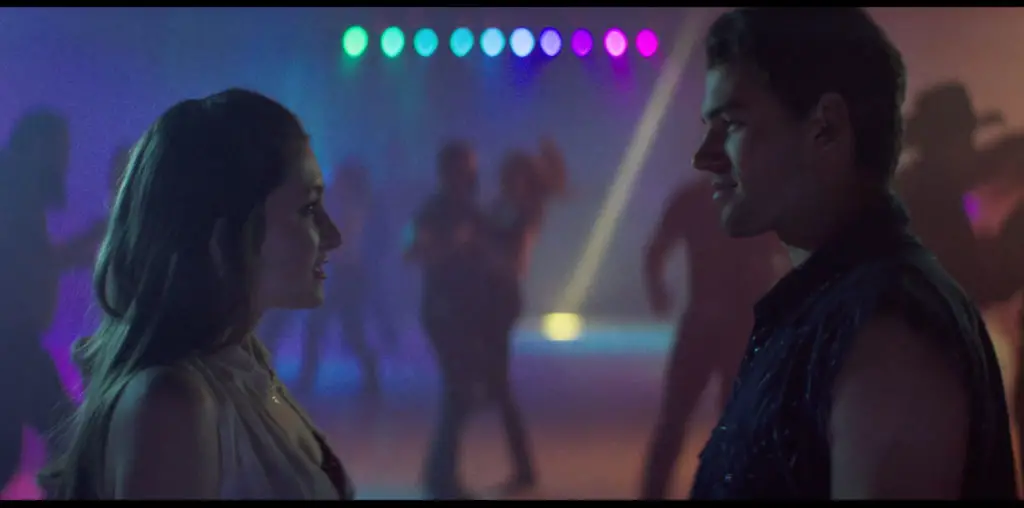
“Black Hawk Down” is a narrative film, but it shows very few traces of a scripted story. It employs a large stable of actors–some familiar, others vaguely recognizable, still more completely anonymous–yet fails to give them much of anything resembling characters to play. Yet “Black Hawk Down” is one of the most riveting film achievements of 2001. Doubtless that sounds like faint praise given how mediocre (to put it mildly) the movie year has been, but to say any less would be to discount director Ridley Scott’s grand achievement.
And make no mistake, this is Scott’s show all the way. The functional script by Ken Nolan (working from Mark Bowden’s nonfiction book) and the participation of actors such as Josh Hartnett, Ewan McGregor, Tom Sizemore, William Fichtner, and Sam Shepard are merely incidental. That said, these elements are given some attention for the first 20 minutes or so, which sets up the basic historical context for the infamous 1993 battle in Mogadishu, Somalia that makes the bulk of the film. On October 3, U.S. troops are sent into hostile territory for what should be a quick in-and-out operation to kidnap warlord Mohammed Farah Aidid’s top lieutenants. With the exposition–handled largely by a few pages of on-screen text–comes the establishment of a few discernible characters, notably stern Major General William F. Garrison (Shepard); Grimes (McGregor), a longtime desk jockey given his first taste of combat; Sgt. Matt Eversmann (Hartnett), a young idealist called on to head up his own squad.
Once the troops are deployed, however, characterization and narrative fly out the window as the mission turns from underthought to botched to downright catastrophic as the titular helicopter takes its fateful dive. The soldiers’ attempts dodge all the gunfire and assorted other Somali firepower to make it to the crash site becomes the only sliver of plot, and despite having character names conveniently written on their helmets, the only distinguishable people are those played by recognizable actors. If this makes “Black Hawk Down” sound a bit lacking in the way of traditional drama, that’s because it is.
But whatever Scott sacrifices in terms of conventional film storytelling he compensates for by creating something on an entirely different level: a uniquely visceral and immersive cinematic experience that places the viewer in the warzone as not so much as an observer than a participant. The initial set-up out of the way, “Black Hawk Down” morphs into one extended combat sequence for the remainder of its run time. The non-stop explosions, crashes, rocket launches, gunfire, debris, and shrapnel that description implies would have been tiresome and numbing had a skilled technician such as Scott not been at the helm. While there is far from a shortage of those elements on display–not to mention a fair amount of blood and accompanying carnage–none of it has been depicted quite so intimately as it is here. With the aid of ace editor Pietro Scalia and cinematographer Slawomir Idziak, Scott aggressively envelops the audience in the action, which unfolds with overwhelmingly chaotic unpredictability; anything can happen without warning, whether it be a snatch of gunfire or an unusually long (comparatively speaking) quiet moment. One thing does remain certain, however: the precarious situations will just end up getting worse before they get better–that is, if they ever do at all.
As with any large-scale Jerry Bruckheimer production, some attempt at emotion is made rather late in the game, and while the angle doesn’t ring exactly false as in the ham-fisted Pearl Harbor, the sentiment feels like an unnecessary flourish. The intense and harrowing barrage of brutality already effectively drives home “Black Hawk Down”‘s main point, which is the futility of the military operation and all it caused. In this sense, it’s a rather shrewd move to not develop the characters beyond the most limited degree; the cold, wasteful machine-like quality to the destruction comes across all the better without forced melodrama. This approach may not wring tears, but it elicits a reaction far more appropriate and harder to shake: a chilling sense of loss–in every sense of the word.
